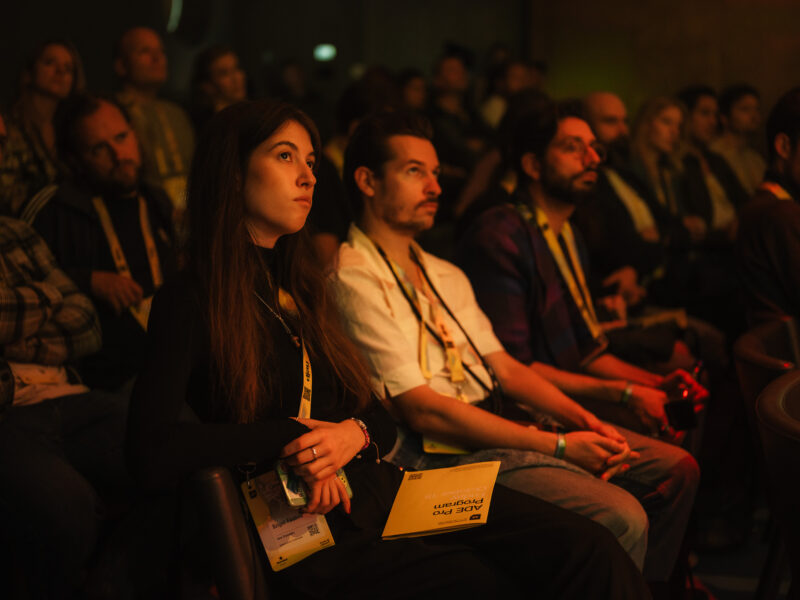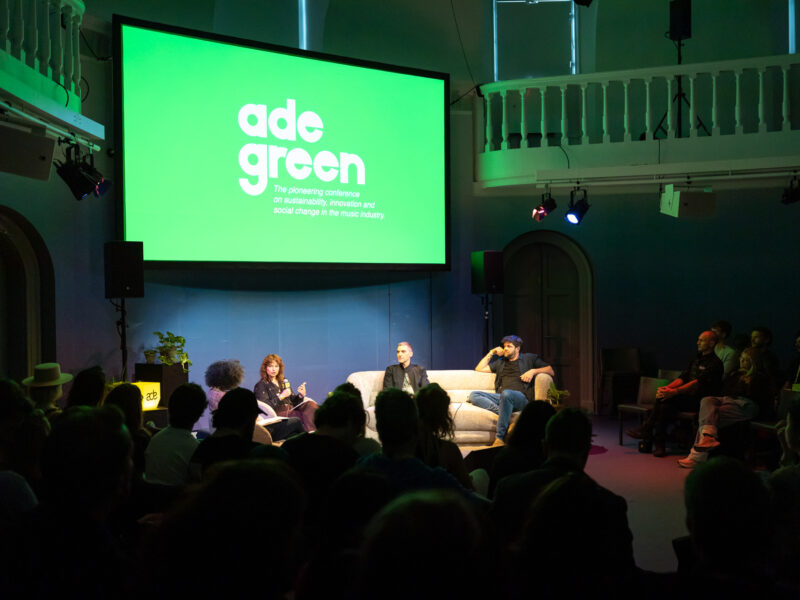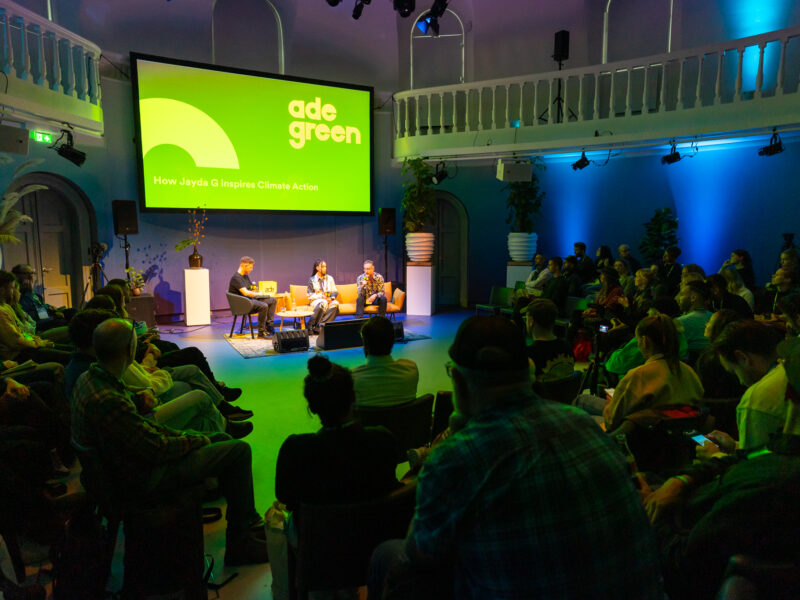ADE Green Livecast dives deep into the post-COVID future of dance music, festivals and sustainability
By: Aron Friedman May 12th 2020
Thursday saw the kickoff of ADE Green Livecast — ADE Green’s new online current affairs show, where host Green Events International invites dance music and event industry professionals from around the globe to exchange ideas about the (un)foreseeable future of dance music, festivals, and sustainability.
Presenter Pay Kolmüs is accompanied by table guests Milan Meyberg, sustainability strategist and Carlijn Lindemulder, founder of ADE Green for a 90 minute deep dive into the post-COVID festival climate. Guests include the directors of Lowlands, Boom and Burning Man, one of the founders of United We Stream, one of the co-founders of Extinction Rebellion and one of the members from Soul Clap.
‘If you can prove you where a successful business before the crisis, people will invest.’
In the first part, Lowlands director Eric Eerdenburg reflects on the current situation in the Netherlands. The government has just announced bigger festivals might not take place until a COVID vaccine is found, and insurance companies are saying they won’t cover large events for pandemic lockdown situations in 2021.

Lowlands Festival
Eerdenburg: “Insurance companies are unreliable partners. As soon as a big risk appears, they will exclude it in their terms once you’re ready to renew your contracts.” But whatever the length of the lockdown, he doesn’t believe only the big players with their safety nets will survive. ‘If you can prove to investors that you were a successful business before the crisis, I think they will keep investing.’
‘By approaching this crisis only from a family point of view, governments are surpassing the many singles in our major cities.’
In the second part, Mirik Milan from VibeLab comments on a Dutch news article, reporting that 65% of Dutch event organizers don’t expect business to return until 2021. VibeLab, together with Berlin Club Commission, were quick to react to the crisis with United We Stream, a solidarity concept that has streamed from ten different cities and has already collected € 400,000 in total for the club scene. It’s running on volunteers, and is meant to help the clubs in this time of need.

Milan is pleased with the international support of United We Stream — although he jokes that the founders think it’s the worst idea they ever had. ‘If you make nightlife clinical, you lose its essence. This helps to connect a bit, but it’s not a substitute in any way.’ Milan thinks how governments have approached this crisis only from a family point of view has been a mistake. ‘This is surpassing the many singles in our major cities, and the fact that social interaction is crucial for our well-being and development.’
‘I hope the festival community will find new ways to embed human entertainment and connectiveness into everyday life.’
Steven Raspa, Associate Director of Community Events at Burning Man, elaborates on the cancelation of his organization’s two main events this summer, and discusses the search for alternative ways to unite Burners in different countries, and use their potential to serve the local communities — their new endeavors including an online virtual Black Rock City experience and the new community collaboration and convening platform Kindling.
Burning Man’s switch from physical to virtual has both its advantages and disadvantages. Raspa: ‘What you miss going virtual is physicality and spontaneity, a sense of immediacy is hard to reproduce online. You also miss the power of being together in nature, which is such a significant part of many of our gatherings. However, you gain the ability to be more inclusive and global in reach, to experiment with the new creative mediums that technology has begun to offer, and the reduction of your carbon footprint.’
Last year, Burning Man published a road map to make their annual desert event carbon negative by 2030. Raspa: ‘Naturally, this year has thrown things off-kilter, and in a humorous way this is going to be our greenest year ever. But when we come back we want to be taking new approaches to a lot of our operations and systems.’ Raspa hopes the worldwide festival and event industry will find new ways to encourage human connectedness and embed art and entertainment into everyday life. ‘I think the question we should all ask ourselves now is: how can we find and create platforms that are fun and engaging, but also can do good in the world?’
‘Reparation, restoration and regeneration is what we all need to be doing right now.’
In the last part, Carlijn Lindemulder catches up with professionals around the world to discuss how we can use this lockdown situation to rethink the festivals of the future. Eli Goldstein from Soul Clap senses an air of change, also on his socials. ‘Posts related to activism are getting more engagement than posts related to music. I think that at the moment, people are hypersensitive to our interconnectedness in the world and our responsibility towards each other. Music is an idealistic world, and dance music especially. We need to lead the way.’
Artur Mendes from Portugal’s Boom underlines the importance of his festival’s goals to become fully regenerative — now more than ever. ‘We should reframe the way we look at festivals. They should move toward a global community based approach.’ He likes to see his festival as a lab for sustainability issues. In fact, Boom has been asked to consult the city of Cascais about all their events. He believes sustainability is an undeniable part of the post-COVID conversation. ‘The association between sustainability and public health is one of the most important factors for the future.’

Boom Festival Portugal 2018
Skeena Rathor from Extinction Rebellion sends in a video with a passionate plight for the healing of our planet’s scars. ‘How would it be if festivals really worked in partnership with the land that they host their guests on? How would it be, if instead of recycled plastic and wooden forks, you came and planted the hedge grows, the wildlife corridors, and the reed beds to repair the water cycles in that land? Repair, restoration and regeneration is what we all need to be doing now.’
For more inspiration and ideas about the future of dance music, festivals and sustainability, please register and watch the video
Keep updated about our livecasts, and sign-up here






